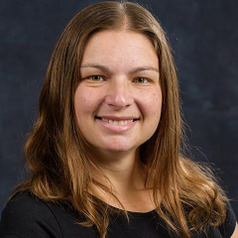
Heather Lum
Assistant Professor of Human Systems Engineering, The Polytechnic School, Arizona State University
Heather Lum is an assistant professor in the human systems engineering program in The Polytechnic School. She joins ASU from Embry-Riddle Aeronautical University. At ASU, she will explore human factors psychology with an emphasis on human-technology interactions. More specifically, she is investigating how working dogs can be studied and used as models for human-robot teaming.
Less ![]()
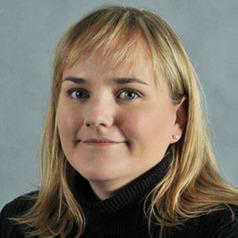
Heather MacIndoe
Associate Professor of Public Policy, UMass Boston
Heather MacIndoe is an Associate Professor of Public Policy in the McCormack Graduate School of Policy and Global Studies at the University of Massachusetts Boston. Before joining the McCormack School, she was a Postdoctoral Research Associate at Brown University’s Taubman Center for Public Policy, and a Research Fellow at Harvard University’s Hauser Center for the Study of Nonprofit Organizations at the Kennedy School of Government. MacIndoe earned her Ph.D. in Sociology from the University of Chicago in 2007, and a master’s degree in Sociology from Stanford University. Her undergraduate degree from Wellesley College was in Economics and American Studies.
Dr. MacIndoe’s research applies theoretical frameworks from organizational and urban sociology to address questions concerning the social organization of the nonprofit sector. Her current research focuses on nonprofit advocacy and policy engagement. She has conducted studies of nonprofit advocacy at the local, state, and federal levels. Other research examines foundation philanthropy and spatial relationships in the nonprofit sector. Her research has appeared in journals such as American Journal of Sociology and Sociological Forum, Nonprofit and Voluntary Sector Quarterly, and Nonprofit Policy Forum.
Dr. MacIndoe is an Associate Editor on the Editorial Board of Nonprofit and Voluntary Sector Review. She also served as an editorial board member for City and Community. MacIndoe serves on the fiduciary board for Boston Cares, the largest volunteer service agency in New England and was previously appointed as a commissioner to the City of Somerville Commission for Women.
Less ![]()

Heather Margonari
Lead Coordinator for the Opioid Free Pathway, University of Pittsburgh
Heather Margonari, DNP, CRNP is a Doctor of Nursing Practice graduated from the University of Pittsburgh in May 2015 with extensive experience in diverse clinical settings, including plastic surgery, orthopedics, and neurosurgery. Currently, she serves as the Lead Coordinator for the Opioid Free Pathway in the Department of Anesthesiology & Perioperative Medicine, as well as working within the Department of Chronic Pain at the Center for Innovation in Pain Care and is affiliated with UPMC Passavant, UPMC Presbyterian, and UPMC Shadyside.
Less ![]()
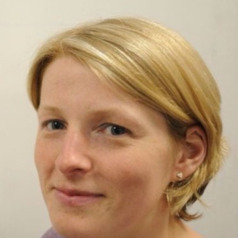
Heather Massey
Heather Massey is a Senior Lecture working within the Extreme Environments Laboratory in the School of Sport, Health and Exercise Science at the University of Portsmouth in the UK. She has 15 years of experience in research in Extreme Environments, with a special interest in the physiological effects of cold water immersion.
As well as an academic interest in the cold water immersion she is also a keen long-distance open water swimmer. She has successfully completed a solo English Channel crossing and competed in the 2nd International Ice Swimming Association World Championship in the 1 km event, and has participated in numerous other long-distance swims and relays. With aspirations to do more.
Less ![]()
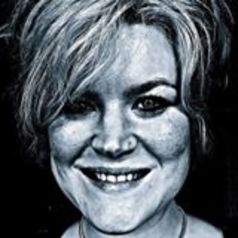
Heather May Morgan
Research Fellow, University of Aberdeen
I am a social scientist and health services researcher working on the integration of new health technologies (wearables, apps) into health and social care.
Less ![]()
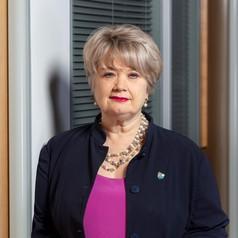
Heather McGregor
Provost and Vice Principal of Heriot-Watt University in Dubai, Heriot-Watt University
Professor Dame Heather J. McGregor is the Provost and Vice Principal of Heriot-Watt University Dubai.
Professor McGregor has a PhD from the University of Hong Kong in Structured Finance and is an experienced writer and broadcaster, including writing for the Financial Times for 17 years under the pseudonym 'Mrs Moneypenny'. She is also the founder of the Taylor Bennett Foundation, which works to promote diversity in the communications industry, and a founding member of the steering committee of the 30% Club, which is working to raise the representation of women at senior levels within the U.K.’s publicly listed companies. Professor McGregor is a non-executive director of two public companies, and the author of eight books, including Careers Advice for Ambitious Women (Penguin, 2012).
In 2009 Professor McGregor received an Honorary Degree from the University of East London for her work to support diversity in employment. Professor McGregor was made a Dame Commander of the British Empire for her services to diversity and employment in the New Year Honours List 2023. In 2021 she was elected a Fellow of the Royal Society of Edinburgh.
Less ![]()

Heather Ross
Clinical Associate Professor in Nursing and Clinical Associate Professor, School for the Future of Innovation in Society, Arizona State University
Dr. Heather Ross holds a joint appointment as Clinical Associate Professor in the School for the Future of Innovation in Society and the Edson College of Nursing and Health Innovation. She is also a Senior Global Futures Scientist in the Julie Ann Wrigley Global Futures Laboratory and a faculty affiliate in the School of Human Evolution and Social Change along with the Barrett Honors College. She brings expertise in healthcare practice; health, science and technology policy; and implementation science to a broad portfolio of applied research initiatives.
Current and recent projects include:
SolarSPELL Health: solar-powered offline digital libraries and health education in remote, under-resourced, and hostile environments globally. Current implementation sites include East and Southern Africa, Latin America, the Pacific, and the American Southwest.
Innovative evidence-based solutions to complex system challenges in behavioral health and public safety in the City of Phoenix.
Investigation of law enforcement documentation practices and technology implementation implications.
American and global health equity and policy. Direct experience in municipal, county, and state government settings.
Infectious disease epidemiology projection modeling.
Sensor-based human technology interaction including wearable health devices and water quality sensors in commercial/industrial buildings.
Dr. Ross is a Fellow of the American Association of Nurse Practitioners and Heart Rhythm Society. She holds national certification as an adult nurse practitioner and maintains an active practice in cardiac electrophysiology with the HonorHealth Cardiac Arrhythmia Group.
Less ![]()
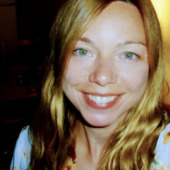
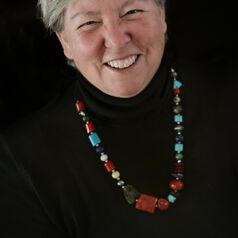
Heather B MacIntosh
Associate Professor, Director, MScA Couple and Family Therapy, School of Social Work, McGill University
Heather MacIntosh is Associate Professor and Director of the MScA Couple and Family Therapy Programme at McGill University where she is the recipient of the H. Noel Fieldhouse Award for Distinguished Teaching. Dr. MacIntosh is a clinical psychologist and principal investigator on SSHRC, FQRSC and FAVACS funded research projects examining the impact of early life trauma on the process and outcome of couple therapy, and the development and maintenance of healthy adult relationships. Dr. MacIntosh is the author of the recently released book: Developmental Couple Therapy for Complex Trauma a Manual for Therapists by Routledge Press, a treatment manual outlining her evidence based treatment model for working with couples dealing with the impacts of complex trauma, as well as a number of peer reviewed articles and chapters in the area of trauma and couple therapy. Dr. MacIntosh provides trauma focused consultation and maintains a small private practice. She is currently recruiting couples for a free Covid couple therapy online group based on the DCTCT model. To inquire about participating follow this link: https://www.mcgill.ca/docmacintoshdctct/recruiting-now
Less ![]()
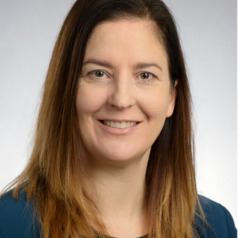
Heather Joyce Nelson
Assistant Professor of Nursing, University of Regina
I am an early career researcher. I have diverse research interests including nursing during the pandemic and sport for children from low income settings. However, most of research is in the area of supporting older adults: older adults experiences during the COVID-19 pandemic, joy and future planning in 100 year olds, and the impact of phone programs on mood and loneliness.
Less ![]()
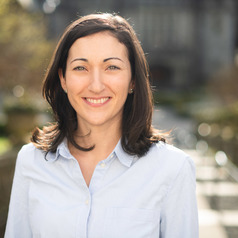
Heather M Hachigian
Assistant Professor of Business, Royal Roads University
Dr. Heather Hachigian is an assistant professor teaching in the Masters of Global Management Program and the Graduate Certificate in Corporate Social Innovation. Her research interests include responsible investment, social finance and new forms of organizations. Hachigian’s recent work focuses on the governance of investment institutions with an explicit long-term mandate. Her research has explored investment decision-making under ambiguity, shareholder engagement and integrating sustainability criteria into infrastructure investment deals. Hachigian has published her research in several book chapters and academic journals, including Business and Politics, Journal of Sustainable Finance and Investment, Journal of Business Ethics, European Financial Review and Stanford Social Innovation Review.
Less ![]()
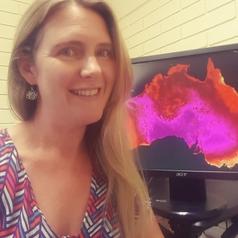
Heather R. Stevens
Researcher - Environmental Science, Macquarie University
I have worked across all three tiers of government (federal, state and local) in the fields of climate change mitigation and adaptation. I completed my PhD in the School of Natural Sciences, Faculty of Science and Engineering and also lecture at the University of Newcastle.
Qualifications:
2017 - 2022 PhD. Macquarie University.
2016- 2017 Masters of Research (Environmental Science). Macquarie University
2013- 2014 Masters of Environment and Business. Newcastle University
2003- 2006 Bachelor of Applied Science (Environmental Management) with Distinction. The University of Western Sydney.
Less ![]()
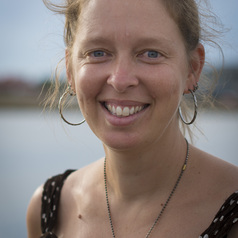
Heather Taylor Johnson
Adjunct Research Fellow at the JM Coetzee Centre for Creative Practice, University of Adelaide
I am currently a fulltime professional writer with publications spanning poetry, novels and creative nonfiction, and I also work as an editor and arts reviewer. I'm passionate about illness and disability narratives and experimental, hybrid forms.
Less ![]()

Hedley Twidle
Associate Professor and head of English Literary Studies, University of Cape Town
Less ![]()

Hedvig Skirgård
Postdoctoral researcher, Max Planck Institute for Evolutionary Anthropology
Linguist working on language diversification at MPI-EVA in Leipzig, Germany. Also co-host of linguistics podcast "Because Language".
Less ![]()

Hee Song
Project Assistant at the Center for Research on College-Workforce Transitions, University of Wisconsin-Madison
Presently enrolled as a PhD student in Educational Policy Studies at UW-Madison.
Less ![]()
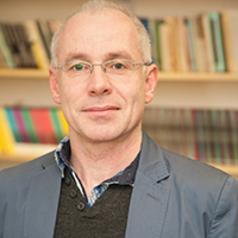
Hefin Gwilym
Lecturer in Social Policy, Bangor University
I completed my bachelor degree followed by an MA, at the University of Wales, Swansea. Then I did my PGCE and later on attained my DipSW, from the University of Wales, Bangor. Recently, I have gained my doctorate from Keele University. My thesis is entitled: ‘The declared political identity of social workers in a neoliberal era’.
My past work includes research assistant in the Welsh Political Archive, National Library of Wales, Aberystwyth; working in the voluntary sector; working as a social worker in north Wales; and teaching social work in further education.
I joined the School of Social Sciences as a lecturer in social work in 2006 and became a lecturer in social policy in 2012.
I have recently completed my doctorate which explores the development of declared and enacted political identity amongst social workers through the use of a constructivist grounded theory and biographical interviews. My supervisors were Dr. Pat Chambers, Professor Farzana Shain and Dr. Damian Breen, School of Public Policy and Professional Practice, Keele University.
I’m currently writing two articles based on my thesis to be submitted to peer reviewed journals.
Less ![]()

Heidi Busse
PhD Student in Chemistry, Penn State
Heidi Busse is interested in atmospheric chemistry and has a passion for science outreach and education. She earned her bachelor's degree in chemistry at the University of California San Diego. Heidi’s research focuses on looking at ice nucleation of atmospherically relevant organic and biological particles.
Less ![]()
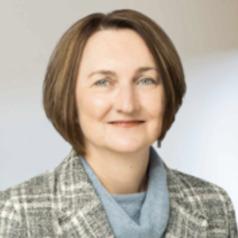
Heidi Drummer
Professor and Co-Program Director, Disease Elimination, Burnet Institute
Professor Heidi Drummer is Program Director for Disease Elimination and co-Head of the Viral Entry and Vaccines research group at Burnet Institute. In 2021, she was appointed as Scientific Director of the Burnet Diagnostics Initiative, a new Burnet Initiative to progress diagnostics through to human health solutions. She also leads the Hepatitis C Vaccine development stream of the Burnet Vaccine Initiative.
Heidi is an inventor on numerous granted patents and is internationally recognised as a leader in viral glycoprotein structure and function. She has developed multiple point of care diagnostic assays to measure immunity to COVID-19 and established clinical studies to examine immune response generated by SARS-CoV-2 vaccines. Heidi has extensive experience in industry engagement and commercialisation of diagnostic assays and the translation of vaccines through pre-clinical studies into clinical trials.
Less ![]()

Heidi Fantasia
Associate Professor of Nursing, UMass Lowell
Heidi Collins Fantasia, Ph.D., is an associate professor and department chair in the Solomont School of Nursing, Zuckerberg College of Health Sciences at the University of Massachusetts Lowell. She is a board-certified women’s health nurse practitioner with more than 25 years of experience providing women’s health care in public and private settings. Her research interests include the intersection of violence and reproductive health, including physical and sexual violence and human trafficking. She has numerous publications and presentations related to women’s health issues including sexual risk behaviors, sexually transmitted infections, and intimate partner violence. In 2011 Fantasia was inducted into the National Academies of Practice as a Distinguished Practitioner and Fellow. She previously served on the Board of Directors for the National Association of Nurse Practitioners in Women’s Health from 2019-2021. Fantasia is the editor for the journal "Nursing for Women’s Health" and the lead editor and author for "Protocols for Nurse Practitioners in Gynecologic Settings."
Less ![]()
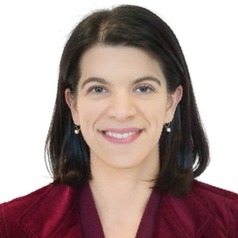
Heidi Gazelle
Senior Lecturer in Developmental Psychology, University of Melbourne
The broad area of my expertise is the development of social behaviour, interpersonal relationships, and emotional functioning in childhood and early adolescence, with emphasis on interpersonal and environmental influences on child development. The specific area of my expertise the interpersonal and emotional developmental pathways of social anxious or withdrawn children over time.
Less ![]()
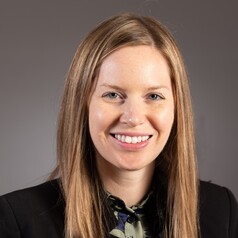
Heidi Hausse
Assistant Professor of History, Auburn University
Heidi Hausse is a historian of early modern Europe (c.1500-1700), with a particular interest in the intersections of culture, medicine, and technology. Her research interests include early modern surgery, prosthetics, and disability history. Her book, The Malleable Body: Surgeons, Artisans, and Amputees in Early Modern Germany, examines surgical treatises and artifacts of prostheses to uncover a transformation in the ways in which surgeons and artisans cut apart the human body through amputation and worked to artificially put it back together with mechanical limbs.
Hausse received her PhD in history from Princeton University in 2016, and was a member of the Society of Fellows in the Humanities at Columbia University from 2016-2018. She was also the 2016-2017 Molina Fellow in the History of Medicine & Allied Sciences at the Huntington Library. In 2018, Hausse joined the faculty at Auburn University. Her research has been supported by the American Council of Learned Societies, the Consortium for History of Science, Technology and Medicine, and the Dr. Günther Findel-Stiftung Foundation.
Less ![]()
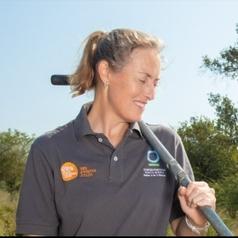
Heidi Hawkins
Research fellow, honorary research associate, University of Cape Town
I am a research fellow at Conservation International and an honorary research associate at the University of Cape Town, enabling a linking of academia with grass roots conservation efforts.
My main interest is nutrient cycling and drivers in aboveground-belowground communities, and what this means for ecosystem functioning and global change. Recent work tests how major drivers in grasslands and savanna (climate, herbivory, fire, woody plant encroachment) affect primary productivity as well as nutrient cycling, soil microbial and faunal diversity, and carbon sinks. My work has informed agroecological problems concerning sustainable and integrated livestock farming, human-wildlife conflict, as well as nutrition and water balance of indigenous crops (protea and rooibos, barley). Besides academic articles, my work includes translational productions such as manuals and policy briefs. My future research vision is to provide major contributions to the knowledge base of biodiversity and nutrient cycling within above-belowground communities, including wildlife areas, so that we can better understand the biodiversity-carbon nexus and manage habitats in the face of global change.
Less ![]()

Heidi McLeod
PhD Candidate in Human Geography, Lincoln University, New Zealand
I am a PhD candidate in Human Geography at Lincoln University, where I am researching Aotearoa New Zealand’s food system. I’ve channelled my personal foodie interests into understanding food regimes, commodity chains, systems and practices that bind up the way the world grows, exchanges, and consumes food. My study and current research focuses on food systems and practices in Aotearoa New Zealand, the potential of alternative practices, the extension of diverse community economy models, and the social benefits that accrue alongside environmental benefits. As a dominant player in the global agriculture market, we have substantial stakes in our own success.
Less ![]()
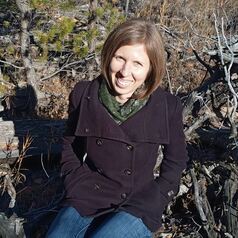
Heidi Walker
Research Associate, Natural Resources, University of Manitoba
I am currently a Research Associate with the Natural Resources Institute at the University of Manitoba, where I work within an international research collaboration aiming to strengthen the use of qualitative social science research methods in impact assessment processes. Broadly, my research interests relate to the social (including equity) dimensions of climate hazards, climate change adaptation, and impact assessment. I hold a PhD in Environment and Sustainability from the University of Saskatchewan.
Less ![]()
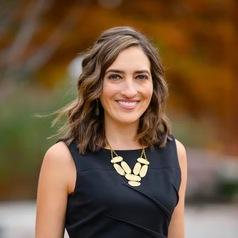
Heidi Zinzow
Professor of Psychology, Clemson University
Dr. Zinzow is a Professor and Licensed Clinical Psychologist in the Department of Psychology. She completed a postdoctoral fellowship in Traumatic Stress at the National Crime Victims Research & Treatment Center at MUSC before assuming her faculty position at Clemson University in 2008.
Dr. Zinzow's research focuses on trauma and mental health, and she has authored over 50 publications in scientific, peer-reviewed journals. She has conducted extensive research on sexual violence, and has recently served as Co-Principal Investigator on two grants to investigate technology-based sexual violence prevention programs. Dr. Zinzow was Co-Principal Investigator on a SAMHSA-funded campus suicide prevention grant and Co-Founder of Tigers Together to Stop Suicide. She serves as a consultant for the National Mass Violence and Victimization Resource Center.
Dr. Zinzow received the Thomas Green Clemson Award for Excellence in 2022, the President's Commission on Women Outstanding Woman Faculty Member Award in 2019, and the CBBS Emerging Scholar Research Excellence award in 2011. She plays leadership roles in Clemson's NSF Tigers ADVANCE initiative to improve campus gender equity and has served on the Clemson University Well-Being Initiative, Sexual Violence Task Force and Title IX Hearing Board.
Less ![]()

Heidi Collins Fantasia
Associate Professor of Nursing, UMass Lowell
Heidi Collins Fantasia, Ph.D., is an associate professor and department chair in the Solomont School of Nursing, Zuckerberg College of Health Sciences at the University of Massachusetts Lowell. She is a board-certified women’s health nurse practitioner with more than 30 years of experience providing women’s health care in public and private settings. Her research interests include the intersection of violence and reproductive health, including physical and sexual violence and human trafficking. She has numerous publications and presentations related to women’s health issues including sexual risk behaviors, sexually transmitted infections, and intimate partner violence. Dr. Fantasia is a Distinguished Practitioner and Fellow in the National Academies of Practice and a Fellow in the American Academy of Nursing. She previously served on the Board of Directors for the National Association of Nurse Practitioners in Women’s Health from 2019-2021. Fantasia is the editor for the journal "Nursing for Women’s Health" and the lead editor and author for "Protocols for Nurse Practitioners in Gynecologic Settings."
Less ![]()
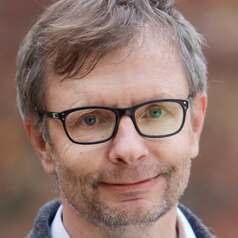
Heikki Hiilamo
Professor of Social Policy, University of Helsinki
Heikki Hiilamo works as a research professor at National Institute for Health and Welfare and as a professor of social policy at University of Helsinki. Previously Hiilamo has worked as research professor at Social Insurance Institution on Finland. He has worked as visiting professor at University of California San Francisco and VID Specialized University Oslo. Hiilamo has the title of Docent from University of Tampere and University of Eastern Finland. Hiilamo’s research interests include family policy, poverty, inequality, welfare state research and tobacco control. He is specialized in quantitative methods. His articles have appeared in leading international journals including Journal of Social Policy, Journal of European Social Policy, International Journal of Epidemiology, American Journal of Public Health and Social Science and Medicine. In 2018 he published a book on household debts for Edward Elgar. In 2016 Hiilamo was awarded with State Award for Public Information.
Less ![]()

Heikki Karjaluoto
Professor of Marketing, University of Jyväskylä
Dr. Heikki Karjaluoto, Professor of Marketing, got his Doctoral degree in Marketing in 2002 from the University of Jyväskylä. Karjaluoto has published extensively on digital business in marketing and information system journals and is the author of several books. He has collaborated with several researchers both in Finland and abroad and actively co-operates with Finnish companies in joint research and development projects.
He has won numerous research and teaching awards including five Awards from International Journal of Information Management (Top 25 Most Cited Articles in 2021 out of all the papers published in the journal's history & during that year; Top 10 Articles Receiving Social Media Attention in 2021 out of all the papers published in the journal's history; Top 10 Most Downloaded Articles in 2021 out of all the papers published in the journal's history & during the same year); Three Highly Commended Paper Awards (from Journal of Systems & Information Technology, 2020; Journal of Product & Brand Management, 2018 and Marketing Intelligence & Planning, 2013), Outstanding Article Award (2019) from Industrial Marketing Management, Best Paper Award (2017) from Industrial Marketing Management, Mobile Marketing Academic of the Year (in 2007 by the Mobile Marketing Association) award, Best Teacher award (2008, 2009 and 2015 by the student union Pörssi, the School of Business and Economics, University of Jyväskylä) and Educator of the Year 2014 award by Oulu Business School Executive Education.
Karjaluoto is the leader of the Digital Marketing and Communication (DMC) research group. His research interests include marketing communications, digital marketing, industrial marketing and customer value. Previous publications have appeared in the Business Strategy and the Environment, Computers in Human Behavior, European Journal of Marketing, Electronic Markets, Journal of Business Research, Industrial Marketing Management, International Journal of Information Management, Internet Research, Journal of Business & Industrial Marketing, Journal of Economic Psychology, Journal of Service Management; Journal of Travel Research, Telecommunications Policy, Telematics & Informatics, among others.
Less ![]()
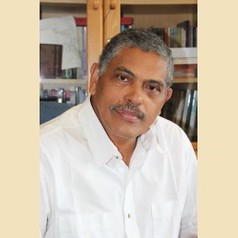
Hein Willemse
Emeritus Professor of Literature and Literary Theory, Department of Afrikaans, University of Pretoria
Hein Willemse studied Law and Afrikaans literature at the University of the Western Cape. He has earned the following qualifications: BA (Hons) (Cum Laude), MA (Cum Laude), MBL and D.Litt. He has published widely on Afrikaans language, literature and orature studies.
He has also taught for extended periods in Mexico, the USA and Namibia.
During the 1980s and 1990s he was a stringer for South and Vrye Weekblad. He contributed to New Era and Mayibuye and served on the editorial committees of Ons Leer Mekaar and Die Suid-Afrikaan.
Willemse is a Professor of Literature in the Department of Afrikaans, University of Pretoria and the current editor-in-chief of the multilingual African literary journal Tydskrif vir Letterkunde (www.letterkunde.up.ac.za).
His books include the award-winning More Than Brothers — Peter Clarke and James Matthews at 70 (Kwela, 2000) and Aan Die Ander Kant — Swart skrywers in die Afrikaanse letterkunde (Protea, 2007).
Less ![]()
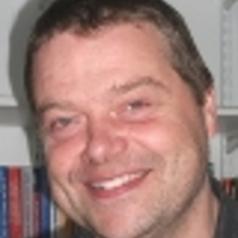
Heinz Brandenburg
Senior Lecturer in Politics, University of Strathclyde
Heinz Brandenburg is a Senior Lecturer in Politics at the University of Strathclyde. After receiving his PhD in 2002 from Trinity College Dublin, he taught at the Norwegian University of Science and Technology in Trondheim and the University of Aberdeen before joining Strathclyde in 2013. He currently teaches classes on research methodology and the role of political parties.
His research focuses on elections, electoral systems and party politics, especially the role of the mass media in elections in Britain and elsewhere as well as in the Scottish referendum campaign of 2014. He is also involved in studying how well European party systems represent different parts of society and the impact of the quality of representation on our satisfaction with democracy.
Less ![]()
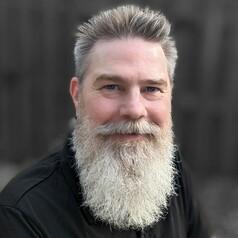
Heith Copes
Professor, Department of Criminal Justice, University of Alabama at Birmingham
Heith Copes is a professor in the Department of Criminal Justice at the University of Alabama at Birmingham. He received his PhD in sociology from the University of Tennessee in 2001. He uses qualitative methods and narrative theory to examine drug use and crime. He has published over 100 refereed journal articles in journals such as British Journal of Criminology, Criminology, European Journal of Criminology, Justice Quarterly, and Social Problems. He has been a visiting scholar and speaker at universities across the United States and Europe, including the University of Queensland, University of South Wales, Aalborg University, University of Oslo, and the Centre for Alcohol and Drug Research at Aarhus University. He has recently been invited to be a visiting scholar at the University of Malmo and at the Max Planck Institute for the Study of Crime, Security and Law. In 2014, he received the Outstanding Educator Award from the Southern Criminal Justice Association. He also received the 2017 Ireland Award for Scholarly Distinction from the University of Alabama at Birmingham. He is the past president of the Southern Criminal Justice Associations. He is currently the Co-Editor of the journal Deviant Behavior.
Less ![]()


Helen Banwell
Lecturer in Podiatry, University of South Australia
I teach, research and practice across a variety of roles. I've elaborated on these roles below but please do not hesitate to contact me if I can be of further assistance.
I have been a lecturer in podiatry at UniSA since 1999, teaching paediatric theory and practice and introducing second-year podiatry students to clinical practice. I am also an Academic Integrity Officer, which you can read more about here. I am an active Honours supervisor for students studying podiatry, physiotherapy, occupational therapy, exercise physiology and medical radiations and currently supervise two Masters of Research and three PhD candidates. I am happy to discuss potential projects with anyone interested.
My research interests include the use of foot orthoses in children and adults with flat feet; assessment and management of gait and lower limb concerns in children; and the development of proforma's to direct podiatric practice. Recent research projects include gait changes and balance concerns in children with coordination difficulties, investigations of podiatric practice and, academic support for podiatry students (including the use of 3D foot models for teaching - for which I won the 2021 Winnovation award for science).
My work as a clinical podiatrist has been expansive, with experience in public and private sectors positions across metro and rural settings and I continue to own a private practice part-time and act as a senior therapist working with children and disability within the NDIS arena.
My engagement with the profession includes being an Executive committee member for the Australian Foot and Ankle Research Network (AFARNet), and an inaugural member of the Advocacy Committee for the Australian Podiatry Association (2018). I have also acted as a consultant podiatrist for Diabetes SA, Correctional Services SA and held positions on the Podiatry Board of South Australia (Academic Representative 2008 to nationalisation), the Prescription rights advocacy group (South Australia) and remain involved in the Paediatric Special Interest Group associated with the Australian Podiatry Association. I frequently talk to media regarding children's feet and general foot and lower limb concerns.
Less ![]()
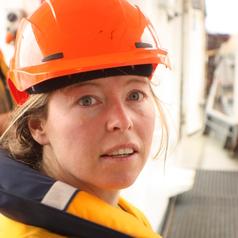
Helen Bostock
Associate Professor in Marine Geology, The University of Queensland
I am a marine geologist and oceanographer who studies the marine environment to understand past and present links between the ocean and climate, focussing on the carbon cycle.
Less ![]()
- Market Data























